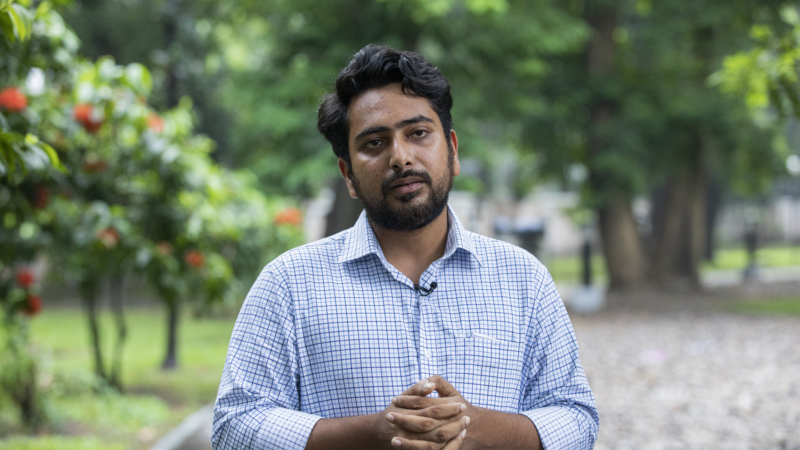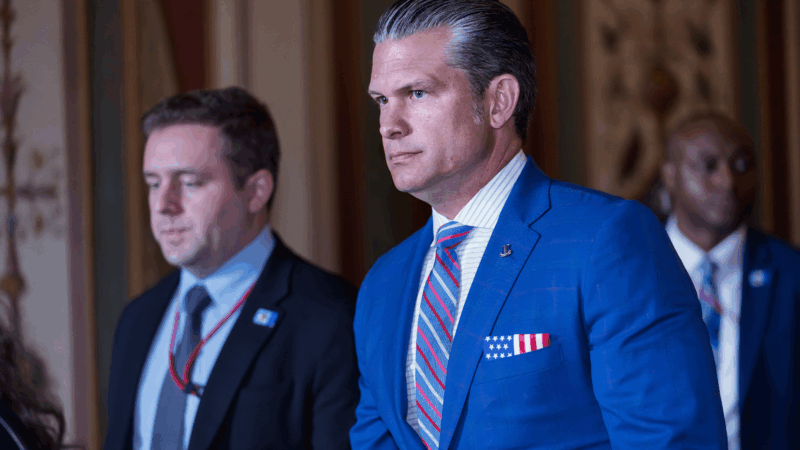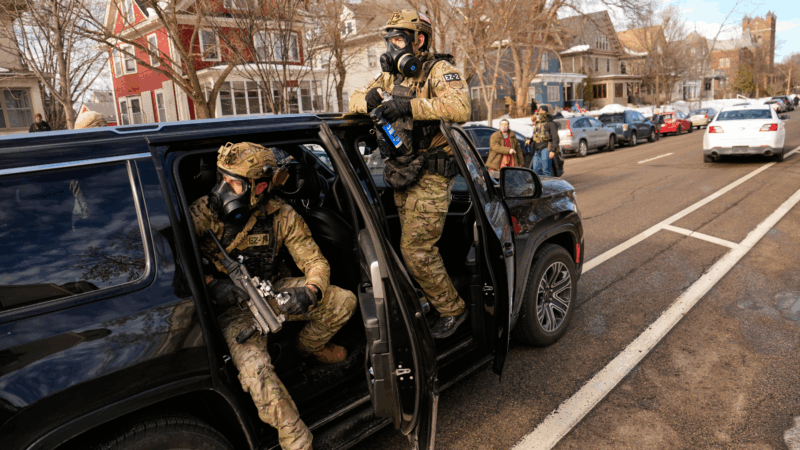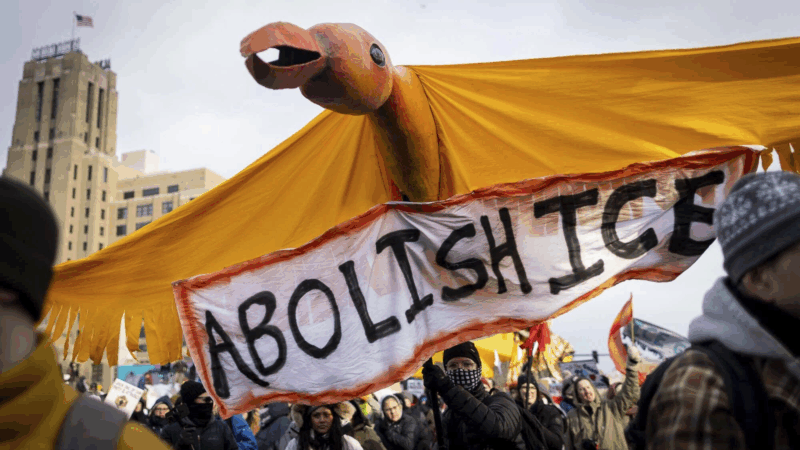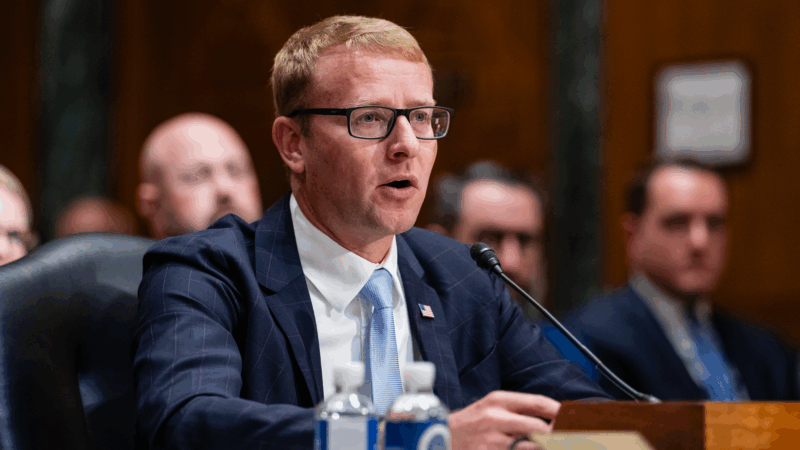As Bangladesh gears up for election, a new political player emerges
DHAKA, Bangladesh — Last summer, 26-year-old Bangladeshi student activist Nahid Islam did the unthinkable. Along with a few companions, he set the stage to bring down the authoritarian Prime Minister Sheikh Hasina and her government.
It sparked Bangladesh’s first ever Gen-Z uprising and concluded with Hasina hastily fleeing to India in a helicopter.
The students’ actions came at a heavy price: at least 1,400 people lost their lives and many others were injured, mostly at the hands of Hasina’s security forces.
For Islam, the eight months since then have been a whirlwind. The sociology graduate was promptly made part of the interim government led by Nobel Laureate Muhammad Yunus, and more recently, he became the convener of a new student-led political party, the National Citizen’s Party (NCP).
It’s beyond anything the little-known son of middle-class educator parents could have imagined, but Islam remains unfazed.
“There was no way to remove the regime except through an uprising,” he tells NPR in Dhaka. “We knew negotiation wasn’t an option. But it wasn’t just against the regime—it was against an entire corrupt system.”
Is a new political era possible?
The question many Bangladeshis are asking now is: Can the uprising translate into long-term political representation, or will the country’s long-standing political establishment continue to maintain its stranglehold?
Islam believes a new political era is possible—but it will take time. His vision for the centrist NCP is one that stands apart from the old guard and brings a fresh way of doing things in what he describes as a “post-ideological” era.
“We want a new political system and a new constitution,” he says. “The current one enables authoritarianism. We need reform so that future governments can’t repeat the mistakes of the past.”
He’s referring to accusations of corruption, oppression, human rights abuses, and a lack of freedom of speech that persisted for years under two of Bangladesh’s main political parties.
Exactly 54 years ago, on March 26th, 1971, East Pakistan, now known as Bangladesh, declared its independence from West Pakistan. This led to a brutal nine-month war, which was followed by a period of one-party rule and, eventually, a military takeover that lasted until 1991.
Since then, it has been dominated by the Awami League, led by Hasina, and the Bangladesh Nationalist Party (BNP), led by Khaleda Zia, widow of former military ruler Ziaur Rahman.
The third-largest party, the religiously conservative Jamaat-e-Islami, has also been influential. It has been banned on numerous occasions due to accusations of inciting violence, most recently in 2024. The ban was lifted by the interim government.
Leading polls and media platforms in Bangladesh predict that the BNP will dominate the upcoming parliamentary elections, which are due to take place in December or soon afterwards.
Tapping into a political vacuum
With most Awami League leaders either exiled or imprisoned, and uncertainty about their participation, a political vacuum is forming that Islam wants to tap into.
According to Bangladesh’s Bureau of Statistics, a quarter of the population is between the ages of 15 and 29 — that’s 45.9 million people.
Bangladesh’s Election Commission said voter turnout in the 2024 elections was around 40 percent — although independent analysts believe it to be lower.
“The uprising has shown that a new political generation has emerged,” Islam says. “They have new aspirations. This generation rejects the old parties. We believe there is a social demand for change.”
As part of this shift, the NCP has already begun crafting its manifesto, with a focus on education, healthcare, climate change, and addressing the specific needs of the country’s youth.
But Naomi Hossain, a political analyst at SOAS, University of London, believes the NCP will face numerous challenges.
“If students secure 25 percent or even 50 percent of the votes, it wouldn’t necessarily translate into as many seats,” she says, “even in the fairest elections, due to how constituencies and first-past-the-post politics work, all elections distort popular preferences in some way.”
A new generation vs new ideas
The NCP also faces the reality that many young people are aligned with the student wings of the BNP and Jamaat.
Mohammad Abu Bakr Siddique Molla, a spokesperson for Jamaat-e-Islami in the UK, says that even though NCP targets young Bangladeshis, both his party and the BNP also have student organizations.
“These organizations played a major role in the uprising,” he tells NPR. “When the elections come, the Gen-Z generation will be divided — some will support the new political parties, while others will back Jamaat or BNP.”
Some key Gen-Z figures aligned with existing political parties include Sadek Kayen, the leader of Jamaat’s student wing and a Dhaka University student, as well as BNP student leaders Rakibul Islam Rakib and Nasir Uddin Nasir.
These, along with many other prominent student activists, played a crucial role in building the momentum that led to the uprising. They continue to be central figures in shaping the future of Bangladesh’s political landscape.
Abdul Moyeen Khan, a senior BNP member, believes that the reforms Islam and his party are pushing for are part of an ongoing process, and not cannot necessarily be shaped by generational differences.
He says that it’s not that the Old Guard will retire today, and the young generation will take over tomorrow. “It doesn’t work that way in society. Reform is a continuous process. A new political generation isn’t defined by age— it’s shaped by new ideas.”
Still, Hossain says, the new student party has broad popular support and sympathy due to last year’s uprising and the sacrifices these young people made.
“There’s no reason to believe that if they perform reasonably well in the next election and gain some support, they won’t build their movement over time and attract the institutional support and funding they need.”
Islam remains reserved when asked if he sees himself as Bangladesh’s future prime minister.
“We believe in collective leadership,” he says. “I’m the leader now, but I may not be in the future. What matters is our long-term vision. The uprising is just the beginning—we want to build on that.”
NPR reached out to a representative of the Awami League for comment but got no response.
Pentagon is embracing Musk’s Grok AI chatbot as it draws global outcry
Defense Secretary Pete Hegseth said Monday that Elon Musk's artificial intelligence chatbot Grok will join Google's generative AI engine in operating inside the Pentagon network, as part of a broader push to feed as much of the military's data as possible into the developing technology.
Offshore wind developer prevails in U.S. court as Trump calls wind farms ‘losers’
A federal judge ruled Monday that work on a major offshore wind farm can resume, handing the industry at least a temporary victory as President Trump seeks to shut it down.
Minnesota officials sue to block Trump’s immigration crackdown as enforcement intensifies
More than 2,000 federal immigration agents are in Minnesota, and that number is expected to increase. On Monday, an NPR reporter witnessed multiple instances where immigration agents drove around Minneapolis — and in parking lots of big box stores — and randomly questioned people about their immigration status.
In photos: A week of protests against ICE
People across the country gathered to protest against ICE over the past week.
Elon Musk’s X faces bans and investigations over nonconsensual bikini images
After the social media app's AI chatbot started generating sexualized images of women and children, two countries have blocked it and several more have launched investigations.
Trump administration tells states to end ‘orphan tax’ on foster kids
There's a growing move to end what some call "the orphan tax" and stop states from taking benefit checks from children and youth in foster care.

